- Details
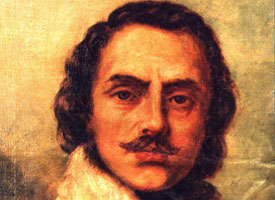 Casimir Pulaski was a Polish-born patriot who went on to fight in the American Revolutionary War, becoming a volunteer on General George Washington’s staff and fighting in several high-profile battles. His successes on the battlefield led Washington to convince Congress to appoint Pulaski the head of the cavalry, a recently established division.
Casimir Pulaski was a Polish-born patriot who went on to fight in the American Revolutionary War, becoming a volunteer on General George Washington’s staff and fighting in several high-profile battles. His successes on the battlefield led Washington to convince Congress to appoint Pulaski the head of the cavalry, a recently established division.
With its large Polish population, Illinois honored Pulaski in the 1980s, designating the first Monday in March as “Casimir Pulaski Day.” Though the state has made the holiday optional for school districts, many still celebrate the holiday and remember the war hero who meant so much to Illinois’ large Polish-American population.
Learn more:
Casimir Pulaski
The Polish Museum of America
- Details
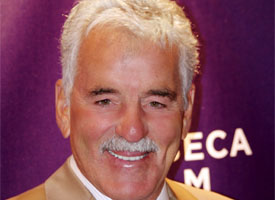 Dennis Farina was born 71 years ago this weekend to a large-Italian family from Chicago. Before his successful career as an actor, Farina was a real-life Chicago Police officer for 18 years after his service in the Army.
Dennis Farina was born 71 years ago this weekend to a large-Italian family from Chicago. Before his successful career as an actor, Farina was a real-life Chicago Police officer for 18 years after his service in the Army.
Farina’s initial work in cinema came as a police consultant to director Michael Mann (a fellow Illinoisan) while working on Mann’s 1981 film Thief. Farina would then go on to appear on Miami Vice and Crime Story.
He became best-known for his role on Law & Order, playing Detective Joe Fontana alongside Jesse L. Martin.
Learn more:
Dennis Farina (Biography.com)
IMDb – Dennis Farina
- Details
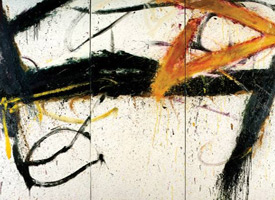 Bluhm is an American artist most famous for his abstract expressionist style. Before his service in World War II with the US Air force, Bluhm studied architecture at the then Armour (now Illinois) Institute of Technology. Upon his return from the war, he moved to Florence, Italy to study art at the Academia de Belle Arte, and then at the Ecole des Beaux Arts in Paris.
Bluhm is an American artist most famous for his abstract expressionist style. Before his service in World War II with the US Air force, Bluhm studied architecture at the then Armour (now Illinois) Institute of Technology. Upon his return from the war, he moved to Florence, Italy to study art at the Academia de Belle Arte, and then at the Ecole des Beaux Arts in Paris.
It was in Europe where Bluhm began to move away from traditional landscape works, to his abstract style. While the abstract expressionism world was exploding in New York, Bluhm’s work while he was in Europe was consistent with the movement. His work is known for big brush strokes and visible paint drops.
Bluhm moved to New York in 1956. While he quickly became embedded in the art scene, he was critical of what he believed to be the growing commercialization of art. His work received a significant amount of critical acclaim.
Learn more:
Norman Bluhm
Hollis Taggart Galleries
- Details
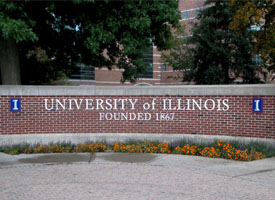 For the third year in a row, students and faculty at the University of Illinois are celebrating “I Love Illinois” Week. The weeklong celebration highlights the University’s founding in 1867 and works to increase school pride and philanthropy on campus.
For the third year in a row, students and faculty at the University of Illinois are celebrating “I Love Illinois” Week. The weeklong celebration highlights the University’s founding in 1867 and works to increase school pride and philanthropy on campus.
The 1867 Society teamed with several other campus organizations to host the first weeklong celebration in 2013. The 1867 Society is composed of students working to increase student philanthropy on campus and gets its name from the year the university was founded.
Learn more:
“I Love Illinois” Week celebrates U of I’s founding
I Love Illinois Week – 2015 Events
- Details
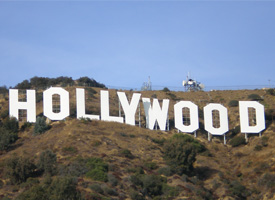 The 87th Academy Awards held last night in Hollywood featured multiple winners with Illinois connections.
The 87th Academy Awards held last night in Hollywood featured multiple winners with Illinois connections.
Rapper and actor Common, who was born and raised on Chicago’s South Side, took home an Oscar for his song “Glory” from the film “Selma,” a historical drama based on the 1965 voting rights marches in Alabama. Common also played James Bevel in the film.
Graham Moore won the Oscar for Best Adapted Screenplay for his work on “Imitation Game.” Moore was raised on Chicago’s North Side.
The Oscar awards, made of Britannia metal and plated in copper, nickel silver and 24-karat gold, also have an Illinois connection. The statues are made at a factory in Chicago that provides statues for many awards shows.
Learn more:
Academy Awards: List of winners
How to make an Oscar statue (CNN)





